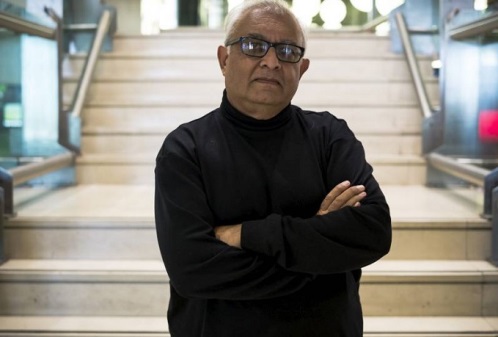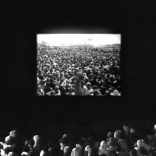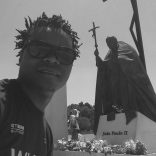Cinema played a "fundamental role" in the creation of Mozambican identity - filmmaker
Life in Wiriamu before and during the massacre – The book

Sapo (File) / Mustafah Dada
Mozambique-born historian Mustafah Dhada has written a book about the Wiriamu massacres released last week at the Social Studies Centre of the University of Coimbra.
In “Anatomy of a Massacre”, Dhada wanted to present an opportunity for the Portuguese people to find out what happened and the Portuguese state to publicly acknowledge the events.
The California State University history professor has spent nearly fifty years researching the massacre of at least 385 people and ended up with post-traumatic stress for his pains. He was forced to seek psychological help and to this day has difficulty being “without a wall behind him”. Says Dhada: “I feel uncomfortable, unprotected. When I hear cries of children or people crying. I have to get away.”
He had a heart attack while writing the chapter reconstructing life in the five affected villages before the massacre. “My cardiologist advised me to write about happier things,” he says, smiling.
More than forty years after the events, Dhada crossed paths with a young British journalist, Peter Pringle, in London, who was made known to the world the story of the massacre in a newspaper article in The Times. Dada went on to complete his life-long ambition and launch what he considers a “fairly definitive” book on the matter: The Portuguese Massacre of Wiriamu in Colonial Mozambique, 1964-2013, published by Bloomsbury. He hopes to see it translated into Portuguese.
The book, released last week, has a preface by Pringle, who wrote his article on the eve of the visit to Britain of the then head of the Portuguese government Marcelo Caetano, and which eventually contributed to the regime’s fall. The story was first reported by foreign missionaries working in the Wiriamu area.
Dhada says he wrote this book “for the Portuguese people and their politicians” in the hope that they will debate it in parliament and mention it in an official document. Wiriamu took place on the morning of December 16, 1972, when Portuguese troops, acting on orders from the Portuguese state, killed at least 385 people, not counting those killed in subsequent “cleansing” operations over the next three days and under interrogation.
His decades of research has proved that this was not “an excessive act of power by some individuals, but done in obedience to orders from a regime and the Portuguese state. This massacre was planned, and executed as planned.” It cannot therefore be compared, for example, with the Vietnam War My Lai massacre, which “was not authorized by the [U.S.] military“.
Professor of World History and African Studies, Dada has lived in the United States for more than 20 years, and says that while Wiriamu may appear unique in the Portuguese colonial regime, it was not. There were other massacres in Mozambique before Wiriamu, including Mucumbura and Inhambinga, which he calls “the last bloodbath before the exit [of the Portuguese]. Two hundred villagers were killed, some hanging by their feet during interrogations, others victims of torture”.
Dhada, learned of the Wiriamu massacre the same way as the rest of the world, reading The Times of July 10, 1973. He remembers it being 9:30 in the morning when a colleague handed him the newspaper. He was 22 and studying in London, and had left Mozambique in 1964 after being classified by the Portuguese authorities as “not assimilated”. From a poor family (his father was a mechanic) he had studied the only way possible in Portuguese Mozambique, at a Catholic seminary, where he and another black man were the only non-whites.
In London, where he arrived knowing how to speak only Portuguese and French, he read the article and thought how like life in his own village that in Wiriamu must have been. Protected, at a distance, he experienced guilt and responsibility and promised that he would take a doctorate at Oxford University and that his thesis would be about Wiriamu. It turned out hot to be so. He would indeed write his thesis at Oxford – in 1987 – but it would be about Amílcar Cabral and the war of liberation in Guinea-Bissau.












Leave a Reply
Be the First to Comment!
You must be logged in to post a comment.
You must be logged in to post a comment.